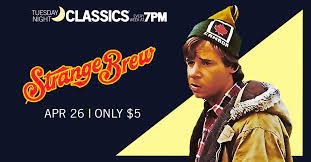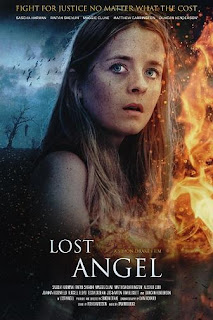Interesting imports this weekend:
Opening at the Laemmle in Glendale, CA:
Bronco Bullfrog--Barney Platts-Mills directed this 1969 indie, shot in gorgeous newsprint shades of pale-gray monochrome by Adam Barker-Mill in London's East End, with a cast of nonprofessionals and music by Audience. The story follows Del (Del Walker) and his pals, a bunch of budding if rather half-hearted teenage delinquents.
They commit heinous crimes like sneaking each other into movie theaters and robbing pinball machines to get enough money for "cakes." In one strand of the plot, they reconnect with an old friend, Borstal veteran Bronco Bullfrog (Sam Shepherd), who reproves them for the childishness of their capers and draws them into robbing a freight train.
In another strand, Del meets the lissome Irene (Anne Gooding), two years his junior, and they fall for each other, probably in no small measure because Irene's Mum and Del's Dad so disapprove of the relationship. Their search, together on Del's motorbike, for a bit of privacy becomes the central struggle of the film.
The charm in this blast from the past, now getting a half-century belated stateside re-release, is the undemonstrative affectlessness that these characters display, and which extends to the quiet, doggedly undramatic filmmaking style. When the lads are unloading the freight car and carrying off the boxes, they might be helping Bronco move into a new flat. Del and Irene get cross with each other, part, and then make up with fewer histrionics then most couples show deciding what to watch on TV. Even the movie's few brief eruptions into violence have a curious lack of brutality.
The result is that these inexpressive ne'er-do-wells, softly murmuring their (subtitled) cockney lines, come across as singularly funny and endearing. Somehow their lack of operatics, and the movie's refusal to conform to a cautionary crime movie template--or any kind of template, really--gives these young people a comic dignity.
Opening in the Valley at Harkins Shea:
Charlotte--This animated feature, directed by Eric Warin and Tahir Rana, tells the story of Charlotte Salomon. The gifted artist's brief life was plagued with everything from horrific dysfunction in her depressed, suicide-prone family to unhappy love affairs to, you know, being a member of a high-profile Jewish family in the '30s and '40s in Berlin and later in the south of France during the Occupation. She is now remembered for creating Leben? oder Theater? (Life? or Theatre?) a narrative cycle of hundreds of paintings, overlaid with autobiographical text, a dazzling and innovative work which survived both her and her Nazi persecutors.
Keira Knightley provides Charlotte's voice (in the English-language version; she's Marion Cotillard in the French version). The story is appallingly, almost unrelentingly sad, but it's also inspiring, and the animation is beautiful.
Opening in the Valley at Harkins Fashion Square:
The Duke--The great Jim Broadbent, who provides the voice of Charlotte's wretched "Grosspapa" in Charlotte, plays the lead in this period yarn, a posthumous work by director Roger Michell. It's a lot more fun than Charlotte. Like Bronco Bullfrog, it's a '60s-era heist movie, with a generous and wryly comedic spirit. But that's pretty much where the similarities end. Michell's direction, employing split screens and jazzy George Fenton music, has a '60s throwback flavor.
It tells the true story of Kempton Bunton, a taxi driver and factory worker from Newcastle who was also a self-educated aspiring playwright, as well as a political crank who campaigned to abolish television license fees for elderly people (he was briefly imprisoned himself for defying the requirement). Bunton turned out to be maybe the most improbable, and least offensive, master criminal in history. In 1961, Goya's Portrait of The Duke of Wellington (ca. 1812) was stolen from London's National Gallery, and authorities deemed it the work of a seasoned professional art thief (the theft is referenced in a throwaway gag in Dr. No).
But as it happened the masterpiece was actually residing, the whole time, in the back of a wardrobe in Bunton's house, and before long the authorities began to get letters demanding a ransom, to be paid not to the thief but to charity. To give away much more of the story would be to spoil some of the fun; suffice to say that Broadbent is flawless and lovable, and has the good sense to act as straight man when Helen Mirren, as his beyond fed-up wife Dorothy, hilariously lets rip at him. The whole cast is fine, but a particular word should be said for Matthew Goode's delicately funny work as Bunton's barrister, who develops a sly affection for his brash, obtusely moral client.
I highly recommend this one. Be forewarned, though: Unlike Bronco Bullfrog, The Duke isn't subtitled, and some of us Yanks might wish it was.













